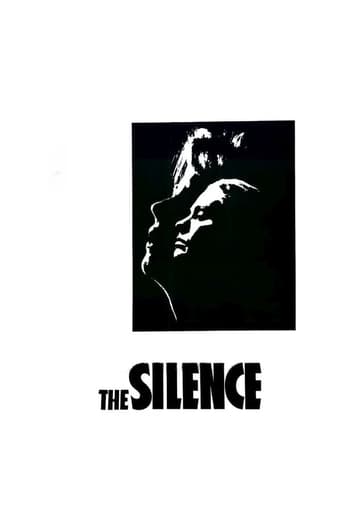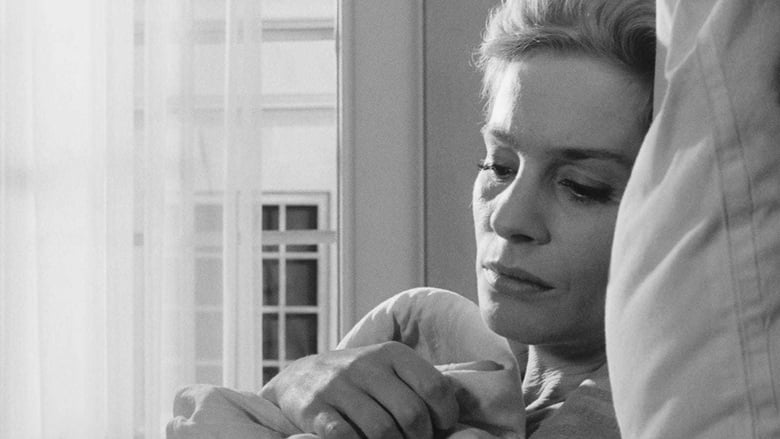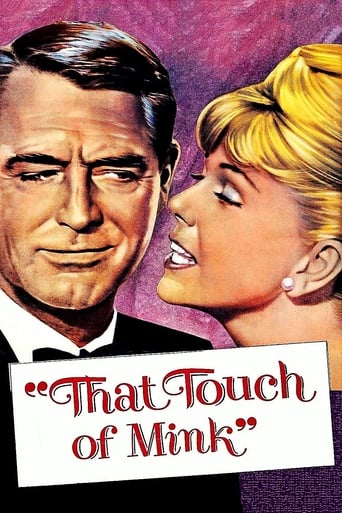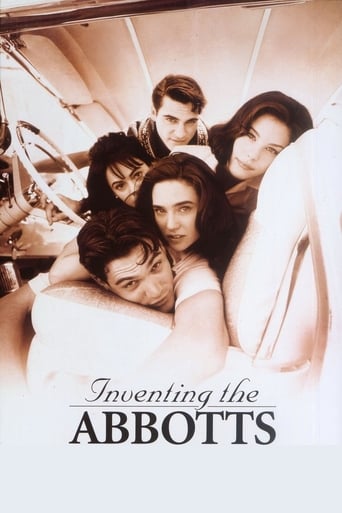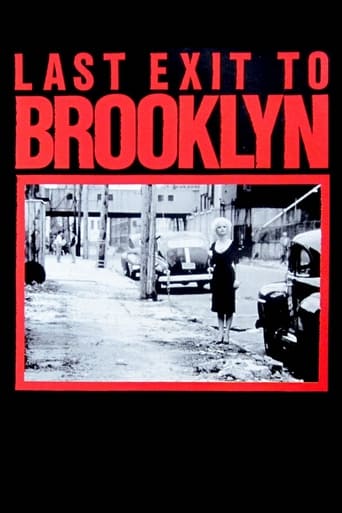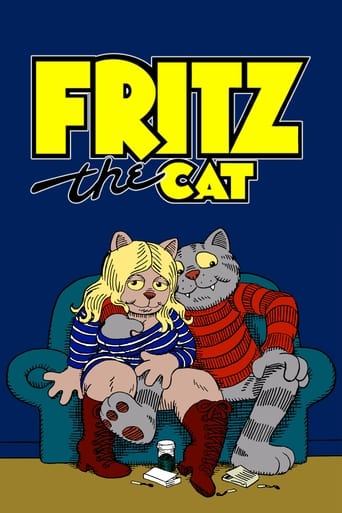The Silence (1963)
Traveling through an unnamed European country on the brink of war, sickly, intellectual Ester, her sister Anna and Anna's young son, Johan, check into a near-empty hotel. A basic inability to communicate among the three seems only to worsen during their stay. Anna provokes her sister by enjoying a dalliance with a local man, while the boy, left to himself, has a series of enigmatic encounters that heighten the growing air of isolation.
Watch Trailer
Free Trial Channels
Cast


Similar titles
Reviews
Truly Dreadful Film
Easily the biggest piece of Right wing non sense propaganda I ever saw.
The movie is wonderful and true, an act of love in all its contradictions and complexity
Great movie. Not sure what people expected but I found it highly entertaining.
Although I write about the film, the following is more my musings/analyses than a review. I hope to begin a conversation about the film, thus I welcome your comments and thoughts.Beyond the obvious, the film also oozes with sexual connotations: Johan may have a budding foot fetish. The physical relationship between Anna and Johan is on the extreme edge of appropriateness or priggish comfort. The waiter drops Anna's change on the floor so he could get a look at her legs if not look up her dress. A painting with a satyr is depicted; satyrs are legend for a perpetual erection and their focus on sexual desires. Anna is sexually aroused upon observing the balcony couple having unrestrained sex.The feelings Ester expresses-particularly and outstandingly with her face-for her sister implies jealousy, un-requited love, vicariousness, envy, disgust, superiority, knowingness, sympathy, and betrayal. The mind games (per Eric Bern's "Games People Play") each plays to spite and manipulate the other are remarkable!Anna reads the local newspaper when we are to believe she does not know the local language; she also reads and orders from the menu. Interestingly, in the newspaper appears the name "J. S. Bach," which foreshadows the music and conversation we hear later in the film. The appearance of Bach's name in the newspaper reminds one of Alfred Hitchcock, who is widely known to appear candidly in his films including "Lifeboat," where he could appear only as a photograph in a newspaper.Initially, the train makes no sound nor movement, creating a dream-like state.I wonder how many times Johan has seen his mother go into and out of rooms with men.There is a stark absence of women in the film; one could count on a single hand the total number of women appearing in the film. If there were a war, there would instead be a stark absence of men.One user-reviewer wrote "a hotel located in an unnamed European country." The country is indeed stated as Timoka. We note too that the little people's tour trunk reads "Madrid" and one of them spoke Spanish.What is Ester's illness? Toward the end of the film, she identifies it-perhaps mockingly-as "euphoria." According to Wikipedia, "Euphoria is also a symptom of certain neurological or neuropsychiatric disorders, such as mania. Romantic love and components of the human sexual response cycle are also associated with the induction of euphoria." In Ester's case, I would tend toward the latter. One would die from neither, which suggests and explains Ester's over-dramatization and periods of apparent health. Such a performance (and her overnight collapse at the door of Anna's tryst-room) is another hand of Bern's "Games People Play."Much has been speculated about a lesbian relationship between the Ester and Anna. If it existed, the current relationship suggests it was one-way or even the exploitation of a younger sister by an older sister. If there is doubt of whether Ester is lesbian, it is addressed in her soliloquy beginning at 1:26, when she says (with no one to understand) "semen smells nasty to me . . . and I stank like a rotten fish when I was fertilized . . . . It's optional . . . . I didn't want to accept my wretched role . . . . but now it's too damn lonely," all of which could also be interpreted other ways.Ester makes a reference to "Uncle Persson," who is the fisherman in "Winter Light" and to whom Gunnel Lindblom's character (Karin) is married.
Anna and Ester are sisters, Johan is Anna's son and they are traveling through foreign country whose language they can't understand. As Ester felt terrible discomfort in train, they decided to take a rest and take a room in a hotel. During their stay at the hotel, Anna feels threatened and dominated by Ester's presence.While most of the cinema enthusiasts were focused on the battle between sisters, Johan caught my attention. As Anna and Ester were battling, he was wondrously exploring the halls of hotel and met dwarfs, hotel janitor, even saw his mother embracing and kissing with stranger. Scenes with him in halls are true gem of this film. Those cuts were astonishing. Camera angles, characters, atmosphere at that moment briefly reminded me of Polanski's "The Tenant" (1976), particularly the moment when Trelkovsky meets alienated neighbors. It's beautiful how Bergman contrasted his childish innocence among the clash of two sisters which relation was intoxicated as a result of their completely different personalities. He was playing with dwarfs, discovering halls of hotel like some kind of parallel universe where everything is possible.We never got true reason of sisters confrontation but from what can be perceived they are true antipodes. Anna is narcissistic, shallow, troubled mostly with her needs and desires. Ester is an intellectual, translator, meaning and reason are her raison d'etre. In their dialogue near the very end of film, it's obvious that Anna is jealous of Ester because she is educated better, her actions are driven by reason yet to be revealed that she earlier in adulthood admired her. At some point, I started thinking that all of Anna's behavior, like cheating on her husband, being very open in sexual relations and taking pride in all that in conversations with her sister was nothing more than her attempt of liberating herself from sister's influence. Anna's lover, some random citizen of that foreign country, doesn't understand her talking and she's happy because of that. Sexual objectification of a man, back in 1963 when this film was recorded, sends strong message of modernism and liberating women from dominant patriarchal paradigm.Like in Smultronstället (1957) and Viskningar och rop (1972) Bergman again successfully used ticking clock suggesting passage of time and, also, time as inevitable mediator of death. Ticking is more lively at the very end of the film suggesting finiteness of Ester's existence. Bergman's usage of ticking clock is one of the most beautifully used symbols in his films. It's only his talent that makes their appearance at perfect timing and the fact that he succeeded to overcome banality due to their overuse.
The Seventh Seal was an absolute masterpiece. After seeing it I thought, "Wow! I've GOT to see more Bergman!" I thought this because The Seventh Seal addressed struggles that are common to all of us; hope, faith & death. Yet at the same time it managed to address these with compelling characters that provided a glimpse both of the beauty of life and of the deep hardship. Seeing Winter Light was then, different. It offered only bleakness, which being new to Bergman I should have been prepared for but I still found the story moving as it showed the extent of this priest's depression.I see The Silence and what do I get? ... Nothing. I really can't think of anything eventful at all that happens in this movie. Common arguments I hear in favour of this movie is that "you are not supposed to relate to the characters. You're supposed to be shattered by their loneliness and their inability to communicate". Which is fine, just as long as something actually happened. I really cannot think of anything that happens in the movie and severely frustrated I fast-forwarded through the movie reading the subtitles so I could get this over with and not watch another Bergman film again any time soon.I was initially drawn to Bergman as he was reputedly one of the great artists of cinema and I was fed up with the same commercial rubbish that was being produced year after year. This movie goes too far in the other direction. People may say there is great merit in this movie for the issues it addresses or its daringness to address them at its time of release, but none of that matters if the movie is not entertaining and this just genuinely wasn't.We go to movies to be entertained.That's it. That comes first.Bringing in philosophical themes & broken relationships is fine, great in fact, as long as the movie is still entertaining. That's what The Seventh Seal did. I really don't know why people LOVE this movie so much. I can't understand why I've only read one other review with this sentiment.However, one of Bergman's quotes was that he couldn't understand why critics loved Citizen Kane so much when he thought it was so "immensely boring". I guess it goes to show how subjective these opinions of movies really are.
This will be the first Bergman film I have commented on!! I feel that Igmar Bergman has established a plethora of paramount accomplishments in the world of the cinema industry!! His brilliance depicts abhorrent human nature which reflects a calculating subjectivity that erupts with callousness and tormented recriminations. These pejorative aspects of behavior are pertinent to the desultory plight of the characters in his films!! A typical Bergman film's portrayal of depression is one whereby it eventually becomes elevated to a new level of hopelessness!! This onslaught of sibilant human discrepancies always unearth a frightful despair in so many of Bergman's productions!! The film, "The Silence" is no exception to the rule!! The term used by a prominent movie critic from the New York Times about this movie, was "ruthless gratification"... This phraseology sums up the culprit to the primary dilemma in this film!!... I can assertively empathize with the fact that these two women are not American; what that means is that their emotional enmity is manifested very differently than "good old fashion Yankee anger". The intercontinental disposition of this film necessitates an urban sophistication which becomes a premise for judgmental injury!! Infidelity, as well as sexual experimentation, are subterfuges for a passionately nurtured loathing... In the United States, Central Park Wext intellectuals deliberately masquerade such infuriating pretenses as a way of flaunting their appropriated prestige with their cavorting intelligentsia!! To the movie audience, the actions of these two women would suggest a very disconcerting demeanor, yet, very much to the contrary, these two characters are consumed by overt resentment and deep rooted hatred!! The first rate felony for the characters in this film was to not be seen in a way they want to be seen. They were impervious to the fact as to whether they protracted any esoteric aspects to their personality in a cogent manner or not!! This was the silver screen's introduction to the nefarious venue of a sex club!! As a matter of fact, when "The Silence" came out in 1963, it was considered the most lewd movie ever made!! Usually when I comment on something being sexually suggestive for it's day, I immediately counter it with "By today's standards, of course, this seems ridiculous" however, in the case of this film, I would have to say that even now, this film is still relatively provocative.. "The Silence" illustrates pictorial nudity, and concepts of debauchery, along with degenerate sexual behavior, which are so ubiquitous, that they suggest an absolute vitiation of moral imperatives!! Bergman does a tremendously dispassionate job of directing this film, as he encompasses sexual wiles into a form of intellectual intimidation.. The acting in this movie is superb... The eccentricities of many side players with "The Silence" articulate a genre of philosophical diversification!! What are these two women really like? My assessment of them is this; Imagine if a pack of wolves went to Oxford!! There should be an unfortunate empathy for the prevailing situation in this movie... In the 1960's, films began to depict people as they really were, and not just stilted characters of exaggerated altruism!! I wish to reiterate that Bergman has always possessed an unprecedented and remarkable quality in directing, so, when "The Silence" was made in 1963, the aggregate double entendre to every critical expression with this flick, was, without question, a perfectly executed breakthrough in cinematic genius!! See this movie, but, make sure the kids are not around!! I give it five stars!!

